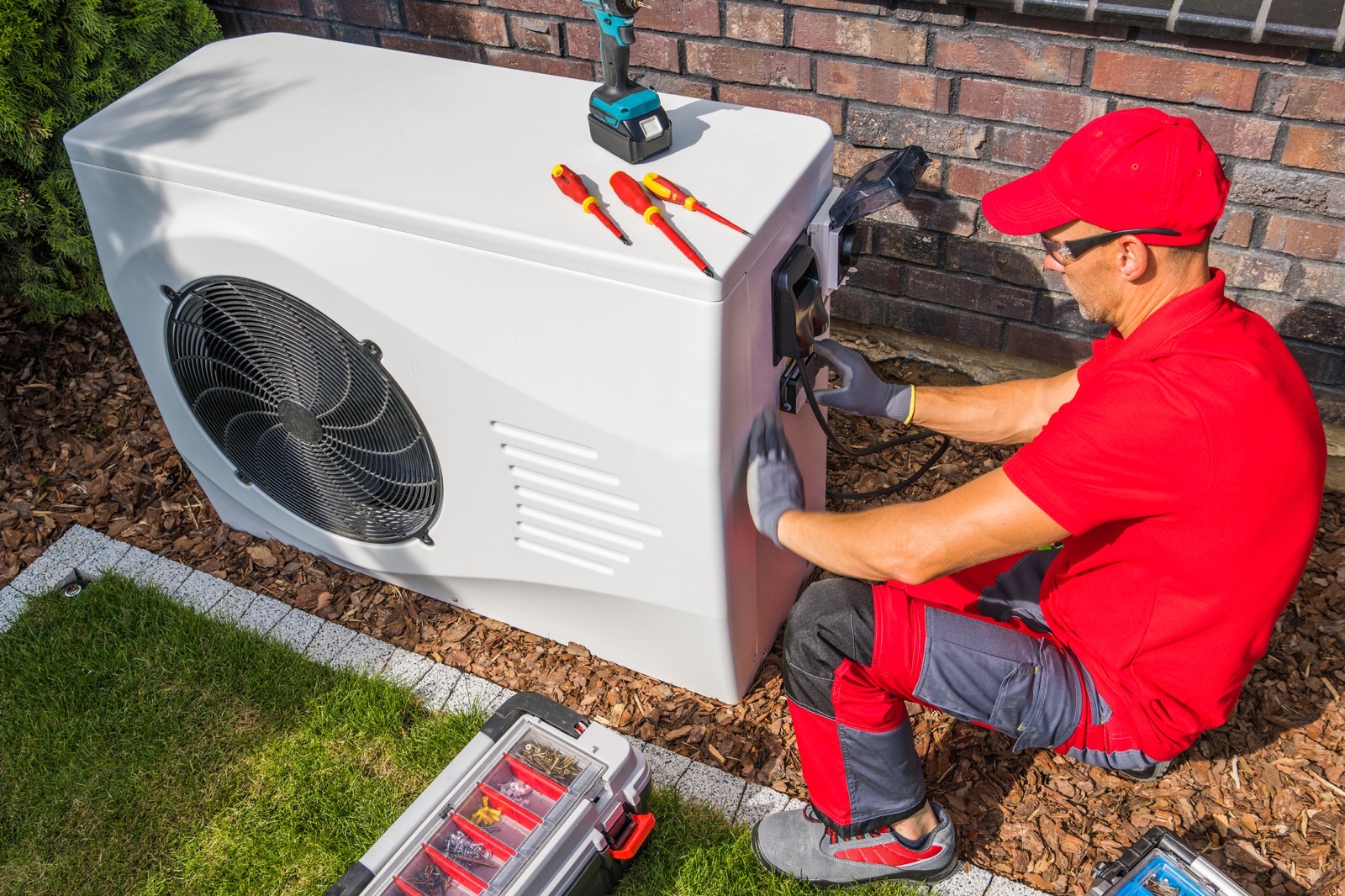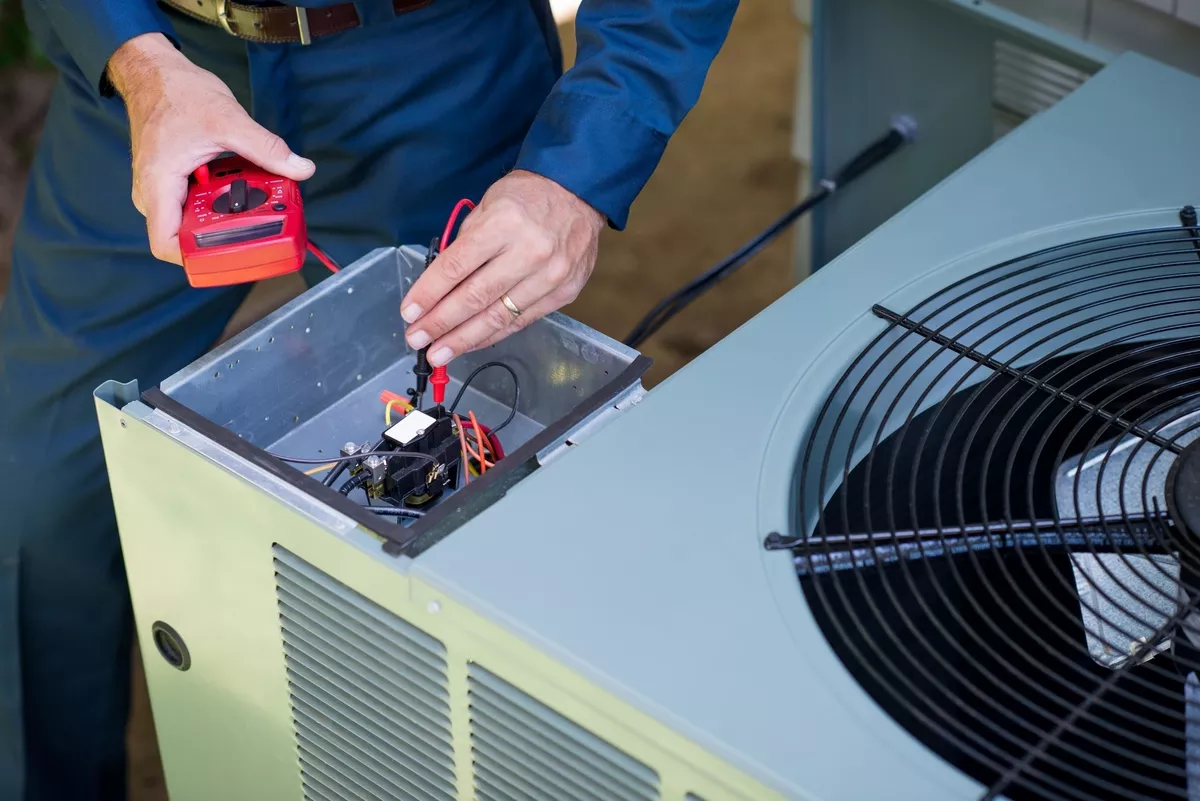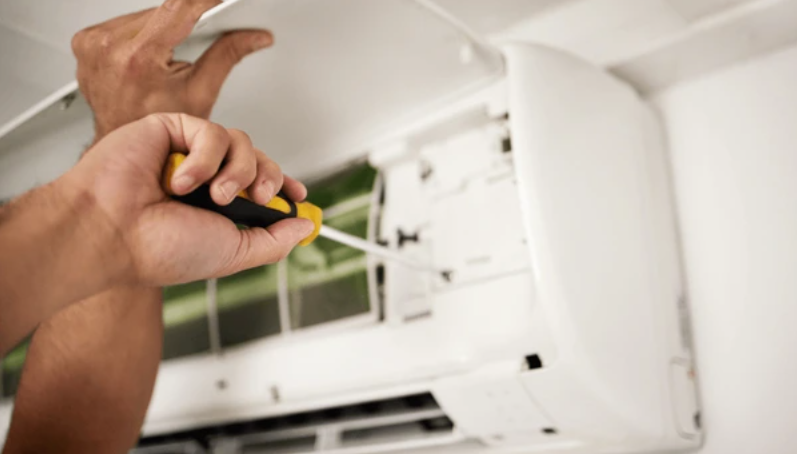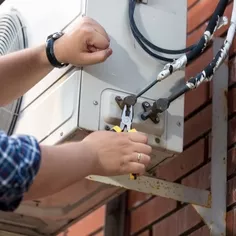As the sun dips below the horizon and evening falls, most people look forward to the relief that comes with cooler temperatures. However, you might not realize that your air conditioner (AC) is actually working harder at night to maintain that comfort. It seems counterintuitive—doesn’t the air get cooler at night? Yet, your AC may be running more efficiently during the day than it does overnight. Let’s explore why this happens and how it affects your energy consumption, energy bill, and overall cooling strategy.
Why Does An Air Conditioner Use More Energy During the Night?
While it might seem like your AC should be running more efficiently once the sun sets, the truth is that many factors contribute to your AC using more energy at night. One primary reason for this is temperature fluctuations and humidity levels. Here’s why:
- External Temperature and Heat Retention: During the day, your home absorbs heat from the sun, especially if it’s a warm climate. Even after sunset, the house continues to radiate the heat it has stored throughout the day. This residual heat makes it harder for the air conditioner to cool the house down at night. As the air cools outside, your home still retains that heat, so your AC has to work overtime to bring down the temperature inside.
- The Thermal Mass of Your Home: The materials your home is made of, such as brick, concrete, and even wood, act as thermal mass, meaning they absorb and hold heat during the day and slowly release it at night. This delayed release of heat means that your AC will still be fighting that residual warmth, working harder than it needs to as the temperature drops outside.
- Stagnant Air: At night, the outside air can become still, which means there’s less natural airflow to help cool the environment. During the day, there’s typically more wind and air movement, which can aid in cooling your home down. But without that nighttime breeze, your AC has to work harder to keep the indoor temperature down.
- Cooler Indoor Air Quality: As the outside temperature drops, you might expect a noticeable drop in the indoor temperature as well. But without adequate ventilation and airflow, the air inside can become stagnant, and your AC might not be able to circulate the cool air properly. This inefficient circulation means the system will have to run longer to maintain the same temperature.
How Does Nighttime Humidity Affect Air Conditioner Performance?
It’s not just the temperature that affects how hard your air conditioner works—it’s also the level of humidity in the air. Humidity, or the amount of moisture in the air, plays a huge role in the performance of your air conditioning system.
As we know, cooler air can feel refreshing and comfortable, but when it’s humid, even cool air can feel sticky and uncomfortable. Unfortunately, the nighttime hours can bring increased humidity levels, which leads to your AC working overtime.
- Humidity Makes You Feel Warmer: Even if the temperature drops at night, high humidity levels make it feel warmer than it actually is. The air holds onto more moisture during the night, which makes it harder for your body to cool off naturally. As a result, your AC needs to work harder to remove that excess moisture from the air to make your home feel comfortable. The more moisture there is, the longer your AC has to run to achieve the same cooling effect.
- Dehumidification: Air conditioners do more than just cool the air; they also remove moisture. As humidity levels rise, especially at night when it tends to accumulate, your AC has to run longer and harder to reduce moisture. If humidity is high, the AC’s evaporator coils work extra hard to pull moisture from the air, slowing down the cooling process and driving up energy usage.
- Inefficient Cooling in High Humidity: When humidity levels are high, even though the temperature may be cooler at night, it can still feel uncomfortably warm. Your AC will struggle to cool down the house when it has to contend with both temperature and humidity, which can lead to longer cooling cycles and increased energy consumption. The combination of cool air and high humidity makes your AC work harder to regulate indoor comfort.
- Increased Wear and Tear: Over time, the constant battle against high humidity can take its toll on your air conditioner. Excessive moisture in the air can cause your system to freeze or operate less efficiently. This can lead to mechanical issues or potential breakdowns, which only adds to the stress on your system and, ultimately, your energy bill.

What Factors Cause An Air Conditioner to Work Harder After Sunset?
There are several factors that contribute to your air conditioner working harder as night falls. Some are related to changes in outdoor temperature and humidity, while others have to do with the internal environment of your home. Here’s a rundown of the key factors that lead to an overworked AC at night:
- Sunset Temperature Delay: Although the sun sets and the external temperature drops, the heat that has been absorbed by your home throughout the day doesn’t disappear right away. This delay in the cooling of your home forces your air conditioner to compensate for the residual heat, leading to longer cycles of operation.
- Closed Windows and Less Ventilation: As night falls, many homeowners tend to close their windows to keep the cool air inside and keep out pests. While this is understandable, it also means that your home loses natural ventilation that could help your AC cool the house down more efficiently. Without this airflow, your air conditioner has to work harder to regulate temperature, as there’s less natural cooling happening.
- Increased Internal Heat: Homes often generate heat from appliances, lighting, and other electronic devices. During the day, the sunlight may help offset some of this heat, but at night, the combined effect of electronic devices, TVs, and lights can add significant heat to the air. The AC has to work harder to cool the home down in the absence of outside help, like sunlight or air movement.
- Humidity from Daily Activities: Throughout the day, activities like cooking, showering, and laundry add humidity to the air inside the house. While you might think that the humidity would decrease at night, it often lingers in the home, requiring the AC to remove moisture from the air. This extra task can make the cooling process much harder for your AC.
Can Adjusting Thermostat Settings At Night Reduce Energy Costs?
One of the easiest ways to reduce the strain on your air conditioner at night—and ultimately lower your energy bill—is by adjusting your thermostat settings. Here are a few tips on how to optimize your AC’s performance during the nighttime hours:
- Increase the Temperature Slightly: Set your thermostat a few degrees higher than usual during the night. Many people find that they sleep comfortably with the temperature set between 75°F and 78°F. Even a small change in temperature can lead to significant energy savings without sacrificing comfort. A cooler night outside often means the need for less cooling inside.
- Use a Programmable Thermostat: A programmable thermostat can automatically adjust the temperature at night, ensuring that your home stays comfortable without overworking your AC. You can set it to gradually increase the temperature as the night progresses, allowing your system to take it easy while you sleep. This simple adjustment can lead to lower energy bills without compromising comfort.
- Utilize Nighttime Cooling: If the outside temperature drops significantly at night, consider using natural ventilation to cool your home rather than relying solely on your AC. Opening windows (while ensuring security) allows cooler air to enter, helping your air conditioner work less. This can be a particularly effective strategy in the late evening hours.
- Ensure Proper Insulation: Proper insulation can help maintain the desired temperature inside your home. By keeping cool air inside and preventing warm air from entering, your air conditioner doesn’t need to work as hard to regulate the temperature. Insulating your attic and sealing any drafts can help reduce your reliance on your AC during the night.
Maximize Comfort Without Breaking the Bank
While your air conditioner may be working harder at night, understanding the factors that contribute to its increased workload can help you make informed decisions about how to optimize your energy usage. From adjusting thermostat settings to improving ventilation and insulation, there are many simple and effective ways to reduce energy consumption and lower your energy bills at night.
By taking a proactive approach to managing your AC, you can improve its efficiency, keep your home comfortable, and save money in the long run. So, don’t let your air conditioner work harder than it needs to—adjust your habits, make a few tweaks, and enjoy a cool and cost-effective night’s sleep!
Keep Your Home Cool and Efficient with Elite Air & Heat LLC!
At Elite Air & Heat LLC, we specialize in optimizing your home’s cooling system to ensure comfort and energy efficiency—especially during the hotter months. Whether you need an AC tune-up, system upgrade, or professional advice on energy-saving strategies, our experienced team is here to help.
Don’t let your air conditioner work harder than it should! Contact Elite Air & Heat LLC today for expert service that will keep your home cool and your energy bills low. Reach out now to schedule your consultation and beat the heat with ease!




